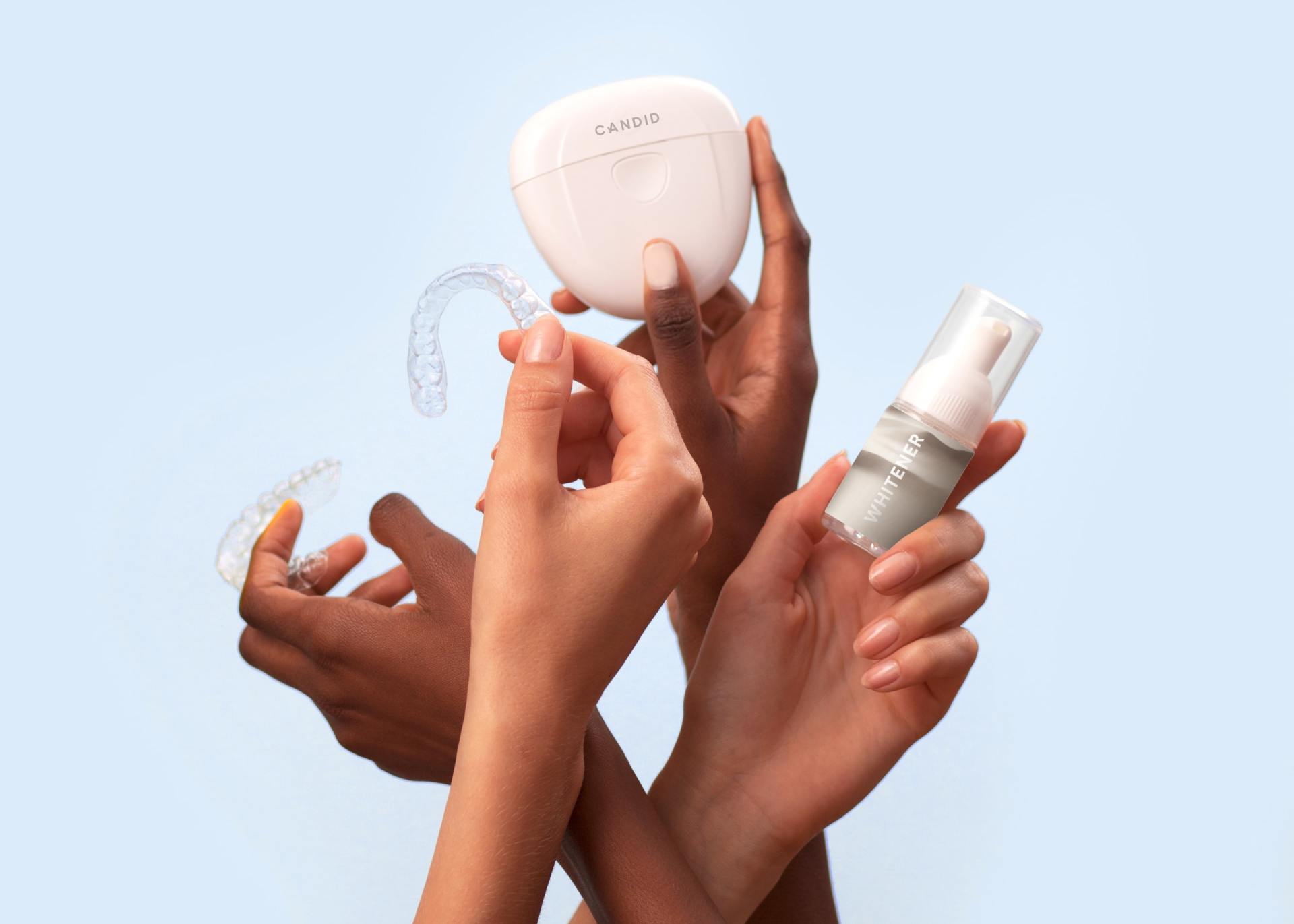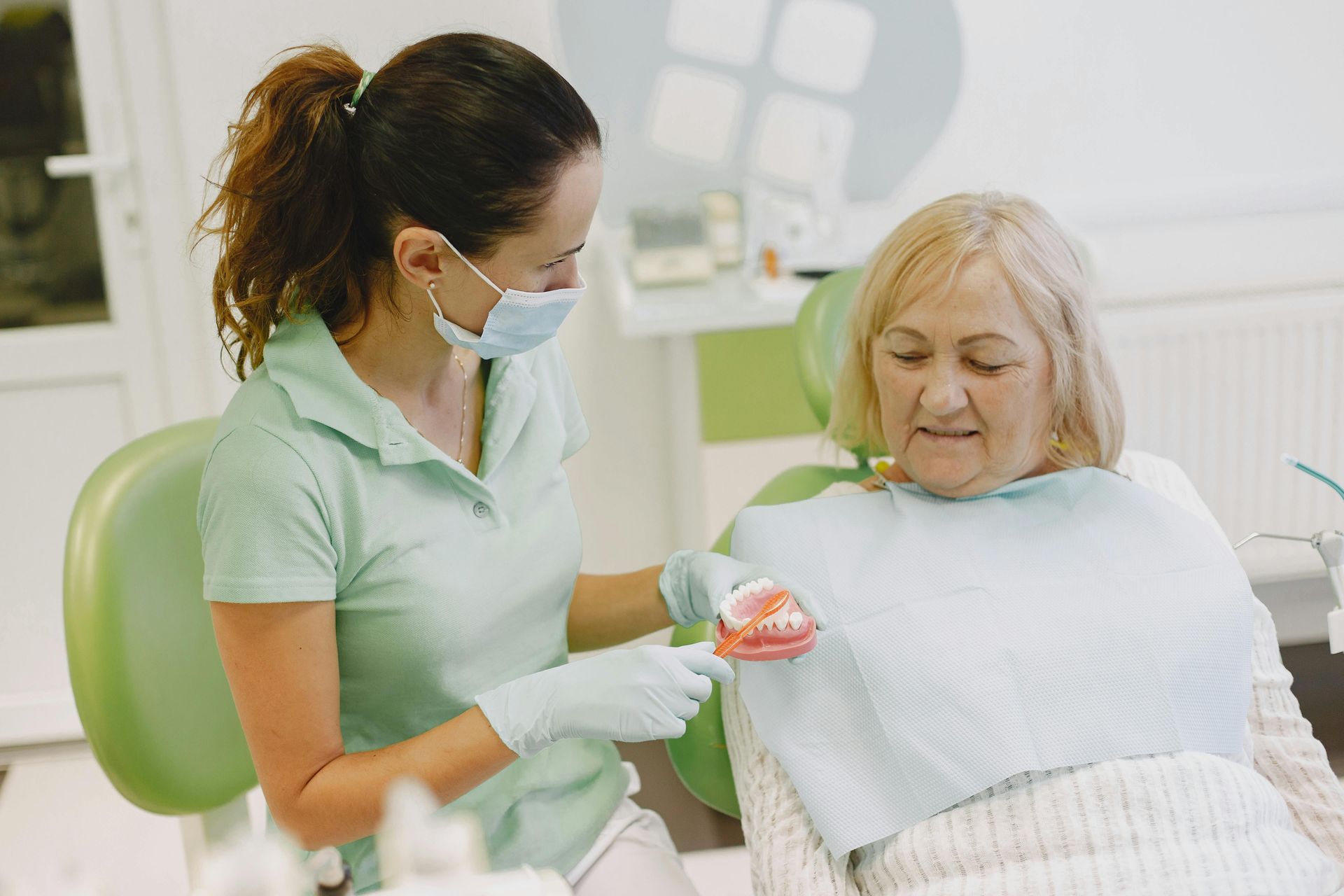Its Never Too Late: Start Fresh with Better Dental Habits This Oral Health Month
The Importance of Establishing Dental Habits
Establishing solid dental habits is essential for maintaining a healthy smile and preventing numerous dental issues. Consistent oral care routines can help ward off tooth decay and gum disease, ensuring a lifetime of strong and beautiful teeth. A balanced daily routine includes brushing twice a day with fluoride toothpaste and flossing to remove food particles and prevent plaque buildup. Regular dental visits are also crucial for professional cleanings and check-ups. These habits not only protect tooth enamel but also support overall oral health.Healthy dietary choices play a significant role as well. Opt for healthy snacks over sugary ones to prevent tooth decay and promote oral health. A well-balanced diet, rich in nutrients, contributes to the strength of teeth and gums, ultimately enhancing dental health.
Building a Solid Oral Hygiene Routine
Establishing a solid oral hygiene routine is crucial for maintaining a healthy smile. Consistent and effective oral care habits help in preventing dental issues like tooth decay and gum disease. Such habits support the longevity of strong and healthy teeth. A comprehensive routine involves not just brushing but also other practices that enhance oral health. Attention to proper cleaning techniques, the right dental products, and dietary choices makes a big difference. Through disciplined adherence to these practices, individuals can significantly improve their oral health and overall quality of life.
Brushing Techniques and Best Practices
Proper brushing techniques are fundamental to effective oral hygiene. Brushing should happen at least twice a day, ideally in the morning and before bed, using a fluoride toothpaste to fortify tooth enamel and fend off decay. Hold the toothbrush at a 45-degree angle to the gums and use gentle, circular motions instead of aggressive back-and-forth strokes. This approach cleans thoroughly without damaging the gums. It is also important to brush for at least two minutes and cover all surfaces of the teeth, including the front, back, and chewing surfaces. Paying attention to each area helps ensure that food particles and plaque are removed effectively, promoting a healthy smile.
Effective Interdental Cleaning Methods
Interdental cleaning is an essential component of oral hygiene that targets areas between the teeth where toothbrush bristles cannot reach. Flossing is the most common interdental cleaning method and should be done daily. It removes food particles and plaque from between the teeth and under the gums. Use about 18 inches of floss, winding most of it around your middle fingers and holding it tautly to guide it gently between the teeth. For those who find traditional flossing challenging, interdental brushes or water flossers can be effective alternatives. These tools adapt to different needs and preferences, ensuring thorough cleaning that supports healthy teeth and gums by minimizing plaque build-up and reducing the risk of gum disease.
Choosing the Right Dental Products
Selecting the right dental products is pivotal for maintaining optimal oral health. A good-quality toothbrush, ideally with soft bristles, is a starting point as it’s gentle on the gums and enamel while still effective in removing plaque. Electric toothbrushes can offer superior cleaning compared to manual ones due to their advanced technology and ease of use. Fluoride toothpaste is essential since it strengthens tooth enamel, making it more resistant to cavities. Additionally, mouthwash containing fluoride or antiseptic agents can supplement brushing and flossing by killing germs that cause bad breath and gum disease. Individuals with specific oral health issues might benefit from products tailored to their needs, such as toothpaste for sensitive teeth or oral rinses for dry mouth. Consulting with a dental professional can provide personalized recommendations to suit specific oral health requirements, helping to maintain a beautiful and healthy smile.
Regular Dental Check-Ups: Why They Matter
Regular dental check-ups are crucial for maintaining a healthy smile and keeping oral health issues at bay. Dental visits play an essential role in preventing tooth decay, promoting strong teeth, and ensuring a beautiful smile. By attending regular appointments, you can catch potential oral health problems early before they develop into more serious conditions such as gum disease or tooth enamel erosion. Moreover, a well-maintained oral health routine contributes to overall health, as poor dental health can impact heart disease and other systemic conditions. Regular check-ups are a cornerstone of a comprehensive oral care regimen, helping to preserve your oral hygiene habits and improve your quality of life.
Frequency of Visits
The frequency of dental visits can vary depending on individual oral health needs, but a general guideline is to schedule check-ups every six months. This biannual routine allows dentists to monitor your oral health closely, ensuring that any developing issues are addressed promptly. For individuals with existing oral health conditions or higher susceptibility to dental problems, more frequent visits may be necessary. Regular dental visits are an opportunity to reassess your oral hygiene habits and make any necessary adjustments to your daily routine. By maintaining a consistent schedule of dental appointments, you can help prevent the onset of serious dental conditions and maintain a healthy smile throughout your life.
What to Expect During Check-Ups
A typical dental check-up involves a series of evaluations and procedures aimed at enhancing your oral health. During the examination, your dentist will assess the health of your teeth and gums, looking for signs of tooth decay, gum disease, and any other abnormalities. This comprehensive assessment helps in maintaining strong teeth and a healthy smile. Additionally, X-rays may be taken to provide a more detailed view of your dental structures, identifying any hidden issues beneath the tooth enamel. Professional cleanings are an integral part of the check-up process, as they remove built-up plaque and tartar that regular brushing might miss. These cleanings help prevent tooth decay and maintain a healthy oral environment. Finally, your dentist will discuss your oral health routine, offering recommendations for improvements in areas such as your choice of fluoride toothpaste and dietary habits. This advice can include practical steps to incorporate a balanced diet and healthy snacks, both of which are essential components of promoting oral hygiene and overall well-being.
The Role of Fluoride in Oral Health
Fluoride is a naturally occurring mineral that plays a significant role in maintaining oral health and is vital for preventing tooth decay. By strengthening the tooth enamel, the hard outer layer of our teeth, fluoride helps protect against the harmful effects of bacterial acids. These acids are often the result of consuming sugary snacks and drinks, which can lead to tooth decay if not properly managed. Incorporating fluoride into your daily oral health routine is crucial to building a healthy smile and ensuring your teeth and gums remain strong and resilient.
Benefits of Fluoride Treatments
Fluoride treatments are beneficial in numerous ways, primarily by enhancing the resistance of tooth enamel to decay and rebuilding weakened enamel. These professional treatments are typically administered by a dentist during regular dental visits, providing an added layer of protection beyond daily brushing and flossing. The unique advantage of fluoride treatments is their ability to counteract the demineralization process that naturally occurs in the mouth, thereby reducing the risk of cavities and promoting stronger teeth. Furthermore, fluoride aids in the reversal of early signs of tooth decay, making it a crucial component of effective oral care.
In addition to these protective benefits, fluoride treatments can significantly decrease the incidence of gum disease by improving overall oral hygiene habits. This reduction in gum disease also minimizes inflammation and reduces the risk of heart disease, which has been linked to poor oral health. Embracing fluoride treatments enhances not just dental health but contributes to better overall health and quality of life.
Identifying Fluoride Sources
Understanding where to obtain fluoride is essential for maintaining a strong dental health routine. Fluoride can be found in various sources, including community water supplies, which are often fluoridated to optimum levels to prevent tooth decay in the population. Drinking water serves as a convenient and effective means of maintaining healthy teeth and gums.
Additionally, fluoride toothpaste is a staple in oral care, specifically designed to deliver the necessary mineral directly to your teeth with each brushing. Most dental professionals recommend choosing a toothpaste that contains fluoride to ensure the highest level of dental protection. Furthermore, fluoride is also available in certain mouth rinses and gels, which can be used in addition to brushing and flossing to maximize oral health benefits.
For individuals seeking additional fluoride, professional treatments administered by dentists, such as fluoride varnishes, gels, or foams, offer concentrated doses that bolster tooth enamel and protect against decay. Maintaining a diet rich in nutrients that support oral health, avoiding excessive sugary snacks, and integrating fluoride from multiple sources can inherently promote a bright, beautiful smile and a well-balanced lifestyle.
Dietary Adjustments for Dental Health
Maintaining a beautiful smile involves more than just regular brushing and flossing; it's also about making smart dietary choices. A diet rich in essential nutrients supports your oral health by strengthening tooth enamel and preventing gum disease. Incorporating a variety of healthy foods into your daily routine can boost your overall dental health and create happier smiles. This section explores foods that support strong teeth and gums, as well as snacks and habits you should avoid for optimal oral health.
Foods That Promote Healthy Teeth
To cultivate healthy teeth, focus on a well-balanced diet that includes foods packed with calcium, phosphorus, and other vital nutrients. Dairy products like milk, cheese, and yogurt are excellent sources of calcium, which helps maintain strong teeth. Leafy greens such as spinach and kale also offer crucial vitamins and minerals that protect your gums and tooth enamel. Moreover, foods high in fiber, like apples and carrots, stimulate saliva production, which helps wash away food particles and reduce the risk of tooth decay.
Including nuts and seeds in your diet can significantly impact your oral hygiene. Almonds, for example, provide calcium and protein, which are known to bolster dental health. Meanwhile, whole grains are another positive choice, delivering essential B vitamins and iron that support gum health. Remember, a well-balanced diet not only promotes a vibrant smile but also contributes to an improved quality of life. Regular inclusion of these healthy foods can keep your teeth robust and your smile gleaming.
Snacks and Habits to Avoid
While certain foods can enhance your oral health, it's equally important to be aware of snacks and habits that could harm your dental hygiene. Sugary snacks and beverages are among the primary culprits of tooth decay. Frequent consumption of candies, sodas, and other sugar-laden items can lead to plaque buildup and cavities. Similarly, acidic foods and drinks, like citrus fruits and juices, can erode tooth enamel if consumed excessively.
Snacking habits also play a crucial role in dental health. Continuous snacking, especially on sugary or starchy foods, provides constant fuel for harmful bacteria in the mouth, increasing the likelihood of cavities. Instead, opt for healthy snacks such as fresh fruits, vegetables, or nuts, which can cleanse the teeth naturally and strengthen gums. Adapting better snacking habits not only supports strong teeth but also improves your overall oral care routine. Remember, maintaining a healthy diet is a powerful tool in achieving a healthy smile and enhancing overall mental and physical well-being.
Creating Positive Dental Experiences for Children
Creating positive dental experiences for children is crucial in fostering healthy habits early in life. By introducing them to welcoming, educational, and fun activities surrounding oral care, children can develop a lifelong appreciation for maintaining their dental health. The perception of dental visits as a positive and routine part of daily life can help reduce anxiety and build strong oral hygiene habits. Establishing a comfortable environment and a routine can also prevent common dental problems such as tooth decay and gum disease. Key to these positive experiences are methods like playful education about oral hygiene, as well as engaging and interactive activities that make brushing and flossing fun.
Teaching Kids About Oral Hygiene
Introducing children to proper oral hygiene at a young age lays the foundation for strong and healthy teeth throughout their lives. Start by educating them about the importance of brushing twice daily using fluoride toothpaste and flossing regularly to maintain a healthy smile. Encourage them to brush their teeth for two minutes in order to properly clean the tooth enamel and reduce food particles, which can cause cavities.
Illustrate the connection between healthy teeth and a healthy body by explaining how poor oral health can lead to issues like tooth decay and gum disease, which can affect their overall health. Understanding the consequences can motivate children to prioritize their dental care.
To further instill these oral hygiene habits, demonstrate the correct techniques yourself, allowing your child to mimic these actions under your guidance. Using role-play or storytelling can make learning engaging, and involve them more actively, strengthening their commitment to dental care.
Making Dental Care Fun for Kids
Turning the often mundane task of dental care into a fun activity can significantly boost a child's willingness to participate in their daily routine. Integrating games or singing songs during brushing can make it more enjoyable, helping them associate oral hygiene with fun, rather than a chore.
Using brightly colored toothbrushes or ones that feature their favorite cartoon characters can capture children’s attention and make brushing feel special. Offering rewards, such as stickers or a small toy, for good oral care practice can also encourage consistency and excitement.
Lastly, create a story where they are the heroes fighting off “cavity monsters” with their toothbrush. This imaginative approach transforms brushing into an adventure, ensuring that children look forward to their daily oral care routine. This establishes a positive, fun-filled connection with dental responsibility that can last a lifetime.
Adapting Your Routine: Tips for Success
Building a healthy smile involves more than just brushing your teeth twice a day. It requires a strategic approach to oral hygiene that integrates healthy habits into your daily routine. By understanding the importance of dental health and implementing effective strategies, you can ensure a beautiful smile and strong teeth. Adopt a well-balanced diet rich in healthy food and minimize your intake of sugary snacks to protect your tooth enamel. Through simple changes, you can prevent gum disease and tooth decay, leading to better overall oral health and an improved quality of life.
Overcoming Dental Anxiety
Dental visits are a crucial part of maintaining a healthy smile, but for many, they incite anxiety. Overcoming dental anxiety is essential to staying on top of your oral care routine. Start by discussing your fears with your dentist; they can provide reassurance and accommodations to make your visits more comfortable. Bringing a friend along for support or using techniques like deep breathing and visualization can also help to ease anxiety. Remember, routine dental care is pivotal not only for oral health but also for preventing issues that could affect heart disease and mental health.
Strategies for Staying Consistent
Consistency in your oral hygiene habits ensures that you avoid complications like tooth decay and gum disease. Establishing a daily routine that includes brushing with fluoride toothpaste and flossing can help protect your dental health. Set reminders or pair your oral care routine with another daily life activity to build the habit. Diversify your routine by incorporating fluoride treatments or mouthwashes when needed. Choose healthy snacks like fruits and vegetables to help remove food particles naturally, supporting a cleaner mouth. Remember, a consistent routine bolsters your oral health, contributing to a brighter, healthier smile every day.
The Long-Term Benefits of Better Dental Habits
Practicing healthy dental habits extends far beyond achieving a beautiful smile. Regular focus on oral hygiene can greatly influence your overall quality of life by promoting strong teeth, preventing tooth decay, and maintaining healthy gums. These routines not only protect tooth enamel but also offer a host of long-term benefits that can enhance both physical and mental health. By incorporating a diligent oral care routine, such as using fluoride toothpaste and attending regular dental visits, you can prevent potential issues before they become major problems. This commitment to dental health supports a balanced diet and reduces the risk of chronic diseases. As you build these better habits, you not only invest in your smile but in your overall well-being.
Prevention of Oral Diseases
Building a robust daily routine that prioritizes oral hygiene is essential for safeguarding against common and potentially severe dental diseases. Dental health relies heavily on consistent practices, such as brushing twice daily with fluoride toothpaste and flossing to remove food particles that brushing alone might miss. These actions play a critical role in preventing tooth decay and gum disease.
Gum disease, characterized by inflammation of the gums, can lead to tooth loss if not addressed with proper care. Regular dental visits also allow for the early detection and management of oral issues, preventing their progression. Moreover, fluoride treatments during these visits can further fortify tooth enamel, reducing the chance of cavities. Consistency in these healthy habits helps maintain a healthy smile while reducing the risk of developing oral health complications that could impact overall health.
Enhancing Overall Health and Well-Being
The benefits of better dental habits extend into various aspects of general health and well-being, proving that oral health is intricately connected to the rest of your body. Studies have shown that a healthy oral health routine can help stave off conditions like heart disease. Bacteria from oral infections can enter the bloodstream and affect the heart, making it crucial to maintain oral care to support heart health.
Additionally, a diet rich in healthy foods that are low in sugary snacks contributes to stronger teeth and overall dental health. By focusing on a well-balanced diet, you provide essential nutrients that support both oral and general health. Moreover, healthy teeth and gums can improve mental health by boosting self-esteem and reducing anxiety related to tooth decay or gum disease. Through sustained oral hygiene habits, individuals not only enhance their smiles but also improve their overall quality of life.
Conclusion: Embracing Change for a Healthier Smile
In conclusion, embracing change in our daily routines is fundamental to achieving a healthier smile and improving overall well-being. By incorporating healthy habits into our lives, such as consistent oral hygiene practices and balanced nutrition, we strengthen our teeth and protect against common dental issues like tooth decay and gum disease.
Here’s a quick checklist to enhance your oral health routine:
- Brush Twice Daily: Use fluoride toothpaste to fortify tooth enamel and ward off cavities.
- Floss Regularly: Remove food particles to prevent plaque buildup.
- Limit Sugary Snacks: Opt for healthy snacks to safeguard your dental health.
- Stay Hydrated: Drinking water helps in maintaining oral hygiene by washing away food residues.
- Balanced Diet: A diet rich in vitamins and minerals supports strong teeth and gums.
- Regular Dental Visits: Professional cleanings and fluoride treatments check oral health.
Remember, these changes do not only foster a beautiful smile but also contribute to a greater quality of life by reducing risks associated with heart disease and enhancing mental health. As we celebrate Dental Care Month, commit to these practices and embrace healthier, happier smiles.
At Don River Dental we give you the best tips . If you are experiencing any symptoms or pain please feel free to call us at (416) 901 - 9292 and someone from our team will be happy to answer any questions and schedule an appointment as soon as possible. We offer safe soothing dentistry in North York.












